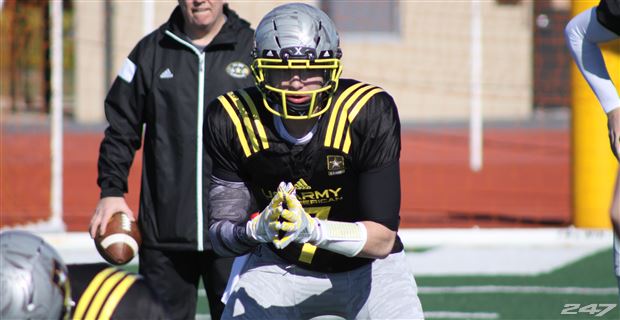
Ole Miss QB Shea Patterson was the loss that sealed Les Miles' fate
It seems unimaginable that a five-star prospect from Louisiana, a prospect that LSU and now former head coach Les Miles needed more than any other, would have shunned the Tigers to go to their Magnolia Bowl rivals at Ole Miss.
But if you want to blame Shea Patterson (or his brother) for Miles’ departure from LSU, don’t do it without understanding where Patterson is coming from.
He’s watched the same LSU football you and I have for the past 10-plus years. He’s seen the occasional outlier like JaMarcus Russell (for a few games) and Zach Mettenberger (for his senior year) give promise to the idea that quarterbacks can succeed under Miles.
But on far too many occasions the opposite has been true. Ryan Perrilloux was supposed to be the next big thing, but many times the former five-star prospect couldn’t get out of his own way to see the field consistently. He was named the Player of the Game in the 2007 SEC Championship Game (by CBS Sports) but would soon get kicked off the team.
Then, there was Andrew Hatch, the first in a long line of underwhelming transfers that somehow found their way on the field with one of the most talented rosters in the nation.
Jarrett Lee? Had his moments in 2011 but threw one of the worst interceptions I’ve ever seen against Alabama in their regular-season contest and was all but exiled after that.
Jordan Jefferson? Square peg in a round hole that had flashes of good over 30 starts but will mostly be remembered for losing 21-0 to Alabama in the 2011 BCS National Championship Game.
Anthony Jennings? Started strong but transferred with little confidence.
Brandon Harris? Became a loyal scapegoat for Miles and a player who has apparently received death threats because some fans are worthless human beings.
Danny Etling? Tries hard but clearly not the answer.
Why would Patterson trust Miles or Cam Cameron with his potential? Sure, Patterson would likely have been playing this year and being compared to Jacob Eason instead of patiently waiting behind Chad Kelly, but then he — and not Harris — would have been the blame for the offensive struggles, and maybe he would have gotten the death threats.
If Miles found a way to meddle and reduce his quarterbacks down to designated hand-off specialists in the past, he would do the same to Patterson. Despite having a roster of top receiving prospects, Miles still came from the old belief that three things happen when you pass and two of them are bad.
For Patterson to subject himself to years of that kind of thinking would not have been in his best interest.
The story surrounding Patterson’s recruitment always leads to his brother Sean. At one point, Sean held a minor coaching position with LSU, but he resigned his post as an offensive quality control guy to become the associate director of recruiting operations at Ole Miss a day or two after Shea committed to the Rebels.
Some LSU fans may have cried foul, but there was nothing illegal about what Ole Miss did.
That being said, the message was clear from where I sat. Shea Patterson wasn’t willing to take a chance on Miles. For that, I can’t blame him. Miles’ meddling in the offense has been widely documented in the past couple of days.
Miles let Harris take the blame for the team’s struggles on offense, and Patterson may have suffered the same fate.
Patterson could have saved Miles’ job, but he chose to give himself the best chance at being the quarterback and college football player he wanted to be.
Dak Prescott, another Louisiana-born prospect, could have saved Miles’ job, but he chose Mississippi State even after LSU tried to jump on him late.
Prescott’s reasons were simple – he fit what Dan Mullen wanted to do on offense, and he didn’t believe that Miles would change his style to fit Prescott’s talent.
They couldn’t save Miles’ job because he didn’t want to be saved.
